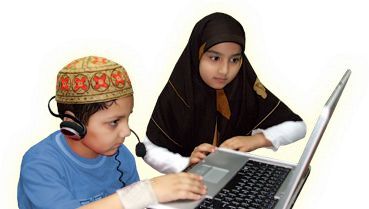Education in Karachi: Nurturing Minds and Building Futures
Education in Karachi, Pakistan, represents a tapestry of diversity and opportunity. This sprawling metropolis, home to over 15 million people, is a microcosm of Pakistan’s multifaceted education system. From its public schools to elite private institutions, Karachi is a city where education is both a challenge and a beacon of hope for countless young minds.
The Varied Landscape of Schools
When we delve into Education in Karachi, the first thing that stands out is the incredible diversity of educational institutions. In a city that boasts a rich cultural and social fabric, you’ll find a wide range of schools, colleges, and universities, each catering to different segments of the population.
Primary and Secondary Education:
Karachi is home to a vast network of public and private schools, from government-run institutions to renowned private schools. Public schools serve as the primary educational avenue for many, but they often face challenges such as overcrowded classrooms and limited resources. On the other hand, private schools offer a range of curricula, including the British, American, and local Pakistani systems.
Higher Education:
As students complete their primary and secondary education, they have a plethora of options for higher education. Karachi hosts prestigious universities like the University of Karachi, Aga Khan University, and the Institute of Business Administration. These institutions cater to a broad spectrum of academic interests, from medical and engineering to humanities and social sciences.
Challenges in the Education System
While Karachi offers a diverse range of educational opportunities, it also grapples with several challenges that affect the quality of education in the city.
Inequality: Karachi’s education system highlights the glaring issue of inequality. While some students have access to well-equipped schools and quality education, many others are trapped in dilapidated classrooms with scarce resources.
Overcrowding: Overpopulation is a significant challenge in Karachi’s public schools, resulting in overcrowded classrooms and a strained education infrastructure. This often leads to a less-than-ideal learning environment for students.
Standardized Testing: Pakistan’s education system places a heavy emphasis on standardized testing, which can stifle creativity and critical thinking. Many argue that this focus on rote memorization and exams doesn’t adequately prepare students for the real world.
Language Barriers: Karachi’s diverse population speaks a variety of languages, including Urdu, Sindhi, and English. This linguistic diversity can create language barriers, particularly in education. Many students struggle with instruction in languages they are not proficient in.
Innovative Solutions and Initiatives
In the face of these challenges, numerous innovative solutions and initiatives are emerging to reshape Education in Karachi.
EdTech: The rise of educational technology is transforming the landscape of learning in Karachi. Online platforms and apps are making quality education more accessible, bridging gaps created by resource constraints and overcrowding.
Public-Private Partnerships: Some forward-thinking initiatives aim to bridge the gap between public and private education. These partnerships work towards improving public school infrastructure and teaching quality.
Curricular Reforms: There is an ongoing effort to revamp the curriculum in Pakistan. The aim is to shift the focus from rote learning to critical thinking and creativity. Initiatives like the ‘Critical Thinking Project’ aim to inculcate analytical skills in students.
Empowering Teachers: Recognizing the vital role of teachers in education, various programs are training educators in modern teaching methods and skills, helping them adapt to the evolving education landscape.
Karachi’s Rich Cultural and Artistic Scene
Karachi’s vibrant cultural scene contributes to the educational experiences of its residents. The city’s art galleries, museums, and theaters provide a rich environment for students to explore their creative sides. Many educational institutions collaborate with cultural organizations to enhance students’ exposure to the arts.
Challenges Faced by Female Students
Gender disparity in education is a pressing issue in Karachi, as it is in many parts of Pakistan. Cultural norms and socio-economic factors can limit educational opportunities for girls. However, various NGOs and government initiatives are working tirelessly to bridge this gender gap. These initiatives focus on creating safe learning spaces for girls and encouraging their participation in education.
Karachi’s Booming Career Opportunities
One of the most significant advantages of being educated in Karachi is the array of career opportunities the city offers. Karachi is not only Pakistan’s financial hub but also a major player in the global economy. This bustling metropolis is home to countless multinational corporations, providing a plethora of career prospects for well-educated individuals.
Conclusion
Education in Karachi is a multifaceted journey, reflecting the complexities and diversity of Pakistan’s largest city. While it grapples with its fair share of challenges, it also represents a tapestry of opportunities for those willing to explore its educational landscape.
As the city evolves and adapts, the future of education in Karachi is poised to be brighter than ever. The combined efforts of educators, policymakers, and innovative initiatives are shaping a more equitable, accessible, and creative education system.
In Karachi, education is not merely about acquiring knowledge; it is about nurturing minds and building futures, not just for the city itself but for the entire nation. Karachi’s youth, equipped with education, hold the potential to lead Pakistan towards a brighter tomorrow, making the city not just a thriving metropolis but also a beacon of hope and opportunity for countless young minds.










